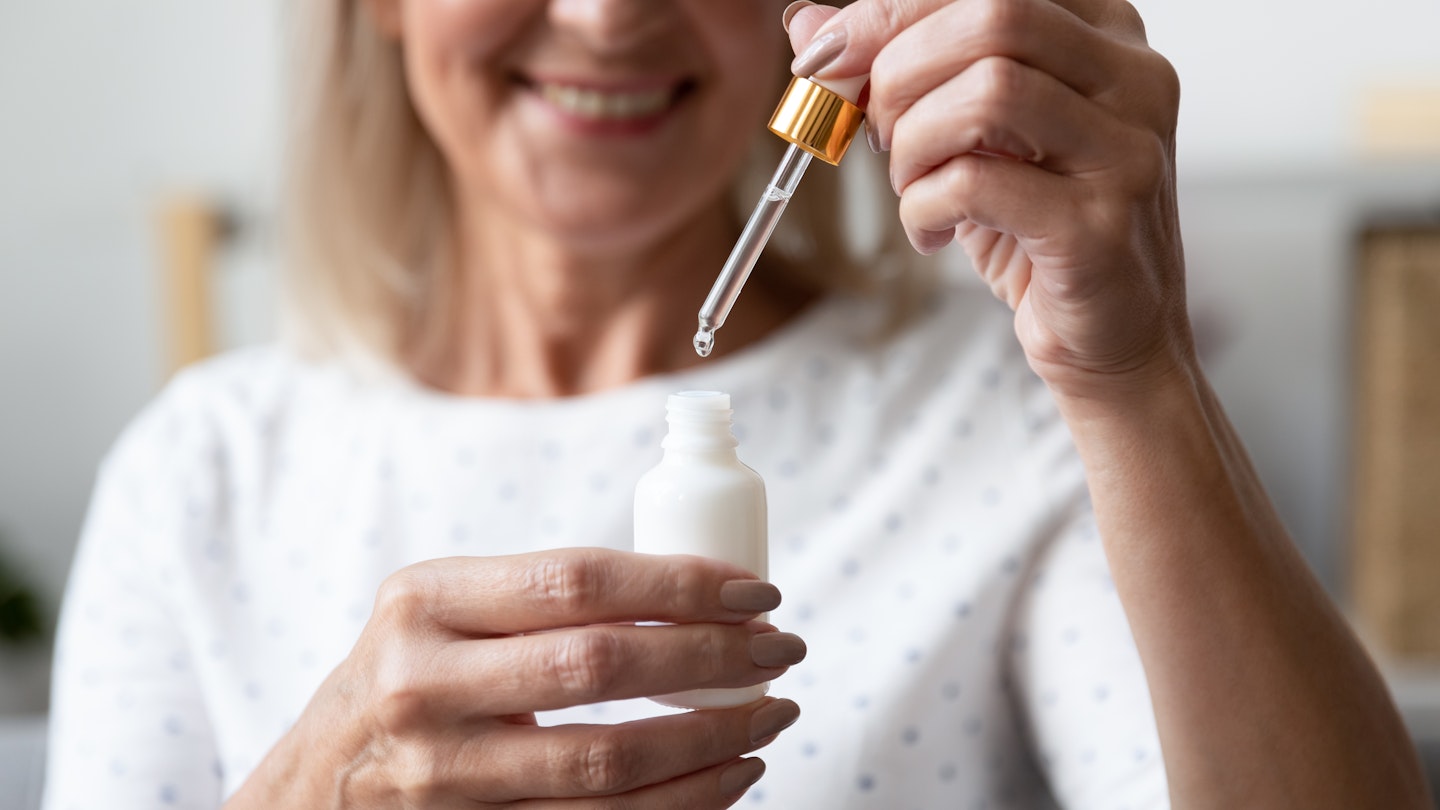You may have heard about the ‘wonder’ ingredient that is retinol. It’s the so-called gold standard of skincare ingredients. A product that beauty experts rave about and with the scientific backing to show retinol actually works.
Yet, anecdotes of the alarming side effects (think peeling and irritation) and confusion around all the different retinol types, mean that few of us are brave enough to give it a go.
But how truthful are the rumours and is retinol as good as they say? We spoke to Dr Sophie Shotter from Illuminate Skin Clinics, to find out if retinol is really worth the hype.
The science of skin
A derivative of skin-boosting Vitamin A, retinol is considered to be the ultimate ingredient for tackling ageing signs. It’s also one of the few skincare ingredients with research backing its claims.
“Retinol is a powerful stimulator of our fibroblast cells,” says Dr Sophie. “These fibroblast cells are responsible for collagen, elastin, hydration and cellular turnover in the skin.” Put simply, our skin’s health is dependent on these four things.
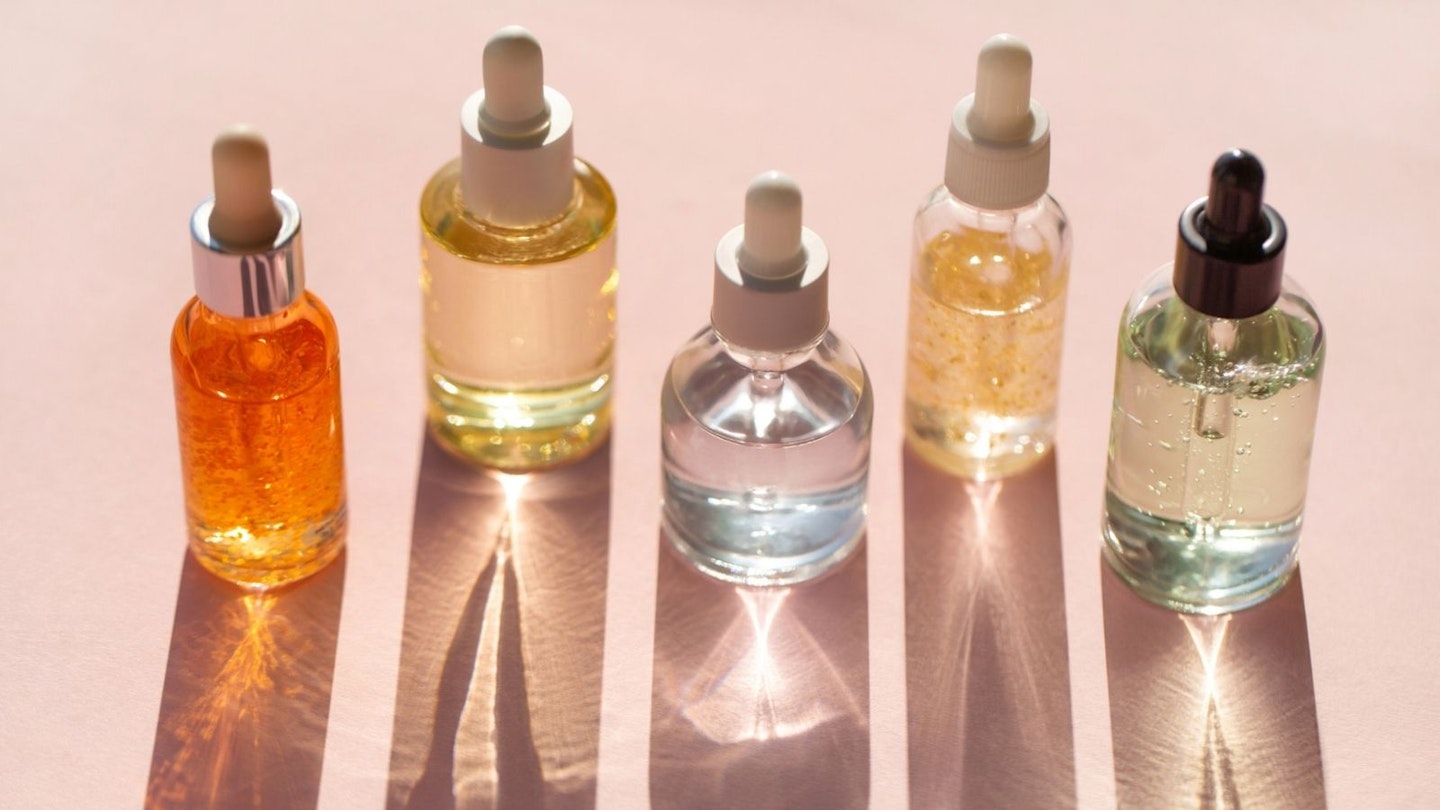
“As we age these skin cells switch off and produce less of these vital skin components, which is why we start to see ageing signs,” explains Dr Sophie. “Retinol, when applied topically, works to increase the numbers of fibroblast cells in the skin and to boost production of collagen and hyaluronic acid.” The result is skin that thinks and looks younger.
New kid on the block
Retinols have actually been rattling around our bathroom cabinets for years. The charms of Vitamin A were first discovered in 1931, but it wasn’t until the Sixties that dermatologists began to see its potential as a skincare phenomenon.
Related: Best eco-friendly moisturisers
One of the first versions, Retin-A, was (and still is) an effective acne treatment, using a strong form of retinoic acid called Tretinoin. As well as being useful for acne, the other side effects of reduced lines and pigmentation caused quite a stir.
It did, however, also cause a lot of unsightly skin reactions. It wasn’t until the milder version of retinol hit the skincare scene, that we began to see results with more manageable side effects.
Know your retinols
Retinoids is an umbrella term for many different forms of retinol, from those that are only available by prescription, to those that are commonly found in face creams on the shelves.
“Each of the different types of retinol can be effective for different skin types, so it’s about finding the right retinol product for your skin,” says Dr Sophie. “A good starting point is with Retinyl Palmitate because being the weakest form of retinol it’s better suited to sensitive skin. Retinaldehyde is next in line, but the most common form is Retinol, which is the strongest available without a prescription.”
Read next: When do beauty products expire?
You’ll also see different strengths of retinol, but stronger isn’t always better as Dr Sophie explains. “Retinol is most commonly found in 0.3, 0.5 and 1 per cent formulations. Occasionally you’ll find a two per cent formulation, but I always recommend starting with a lower concentration and building up to minimise irritation.”
Let’s get started
So, how do we get started? Very gradually is the advice from the experts.
“Because retinol can be irritating, start by adding to your night routine, either as your last step before bed or apply a moisturiser over the top,” suggests Dr Sophie. “A pea-size amount is enough for the whole face and start by using it just twice a week. After two weeks increase to every other night. In another two weeks increase to every night if your skin can tolerate it.”
Read next: The best foundations for mature skin
Don’t be surprised though if your skin doesn’t take kindly to regular application. “Some find they can’t use retinol more than once or twice a week without excessive side effects,” explains Dr Sophie. “These should go away within a month, but if your skin feels sore and irritated give it a few days off before trying again.”
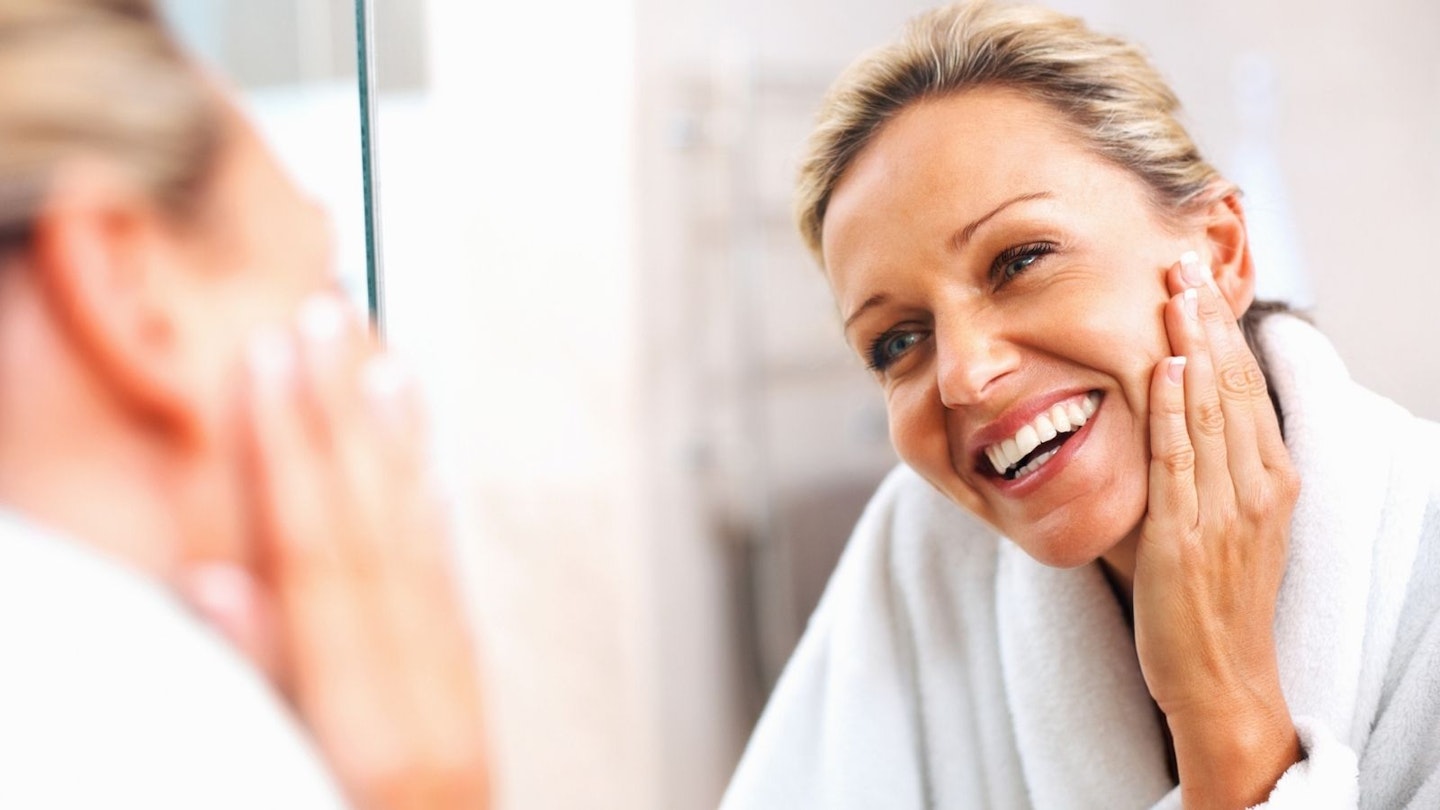
Retinol best buys

www.boots.com
This new No7 product gathered a 100,000 strong waiting list before even going on sale. It combines the brand's popular peptide formula and retinol, in a concentration that gives results with minimal irritation.
Retinoids: 0.3% retinol
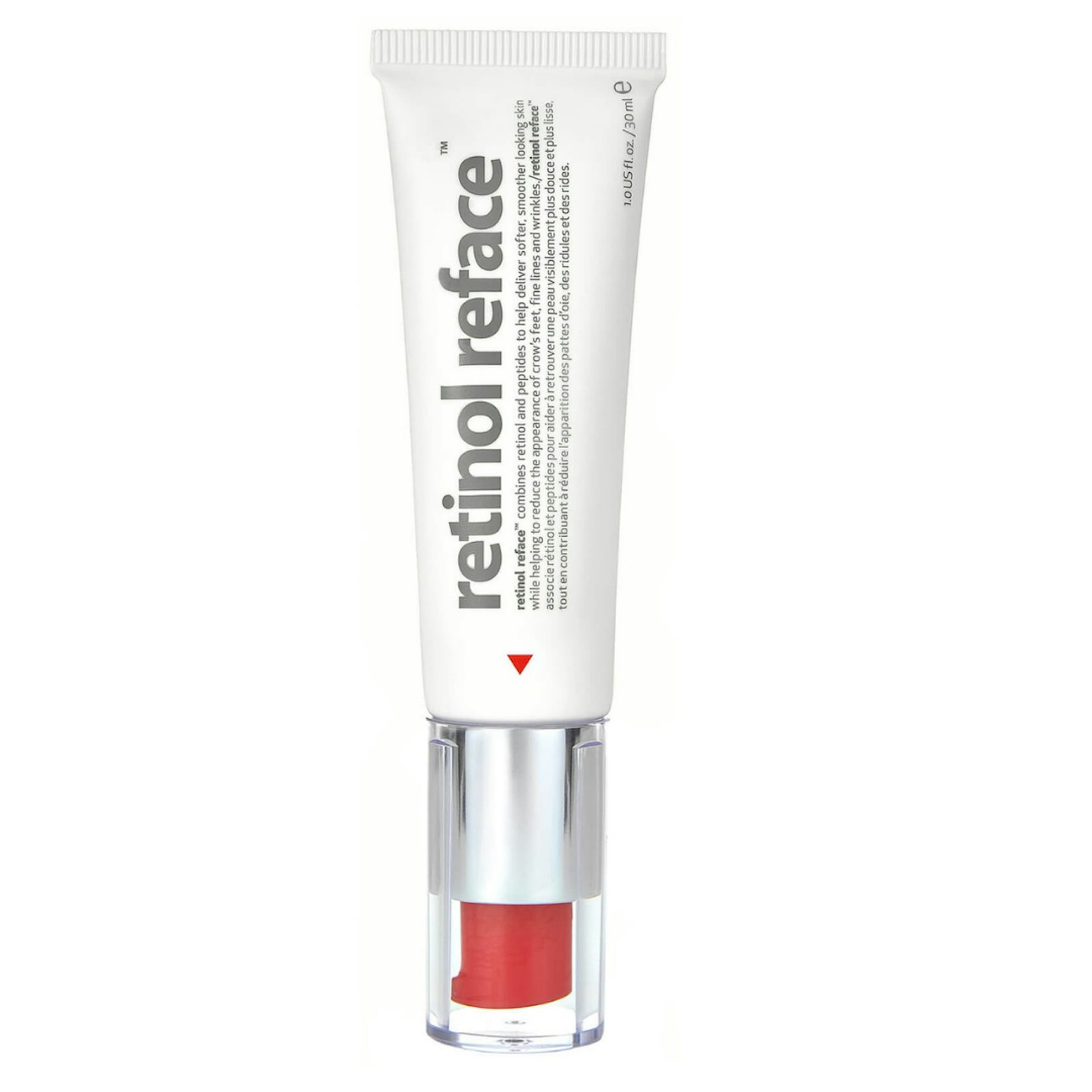
www.boots.com
If you prefer a cream formula, rather than a serum, then this is a great choice. Reviewers found it gentle, hydrating and saw quick results.
Retinoid: 1% retinol

Unlike the previous two, this one contains a retinoid active complex, which experts reckon gives similar results to the prescription-only Tretinoin, but without the irritation.
Retinoid: 2% hydroxypinacolone retinoate
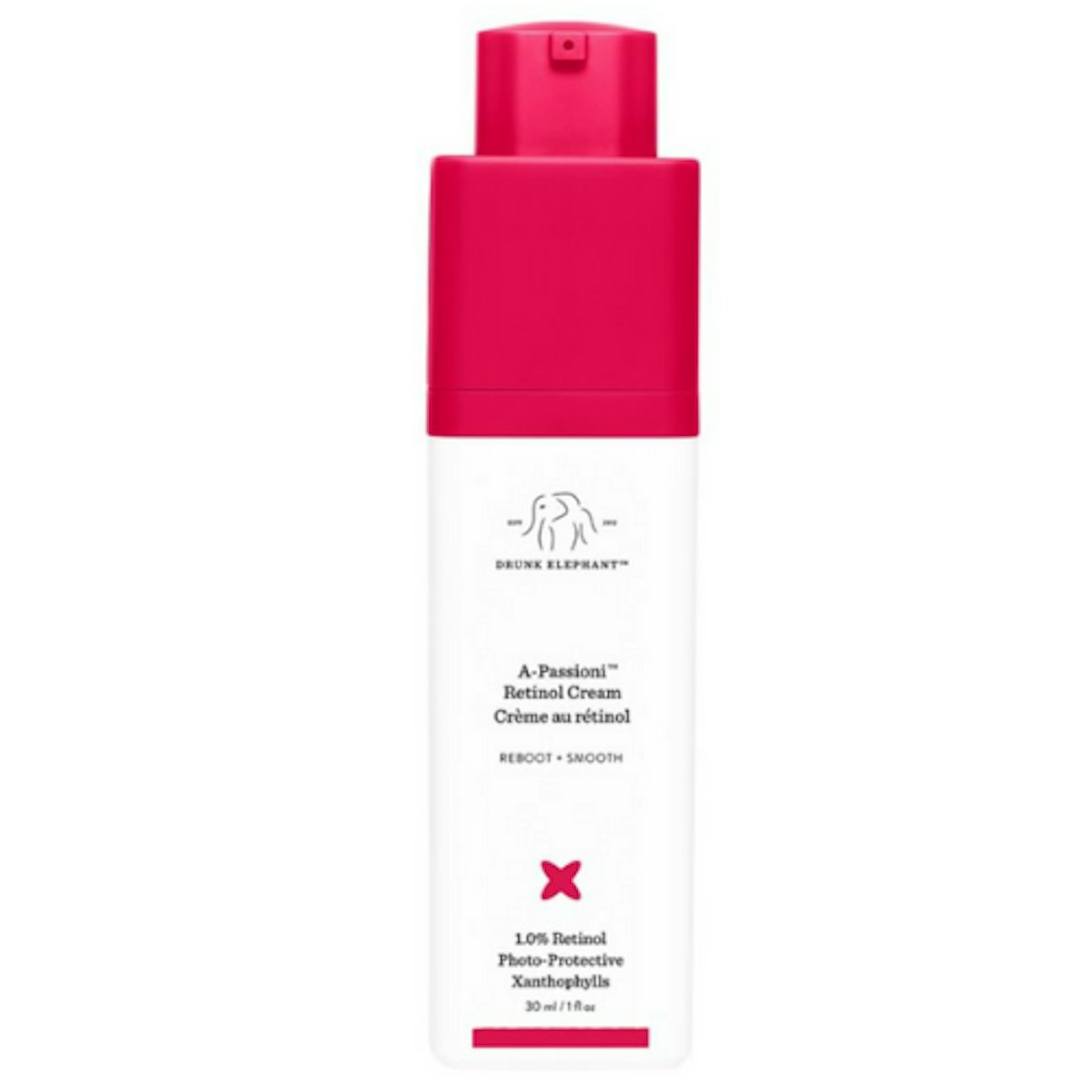
www.boots.com
With a stronger percentage of retinol, this vegan, superfood-rich formula can help to diminish the appearance of fine lines and wrinkles and only needs to be used once or twice a week initially.
Retinoid: 1% retinol
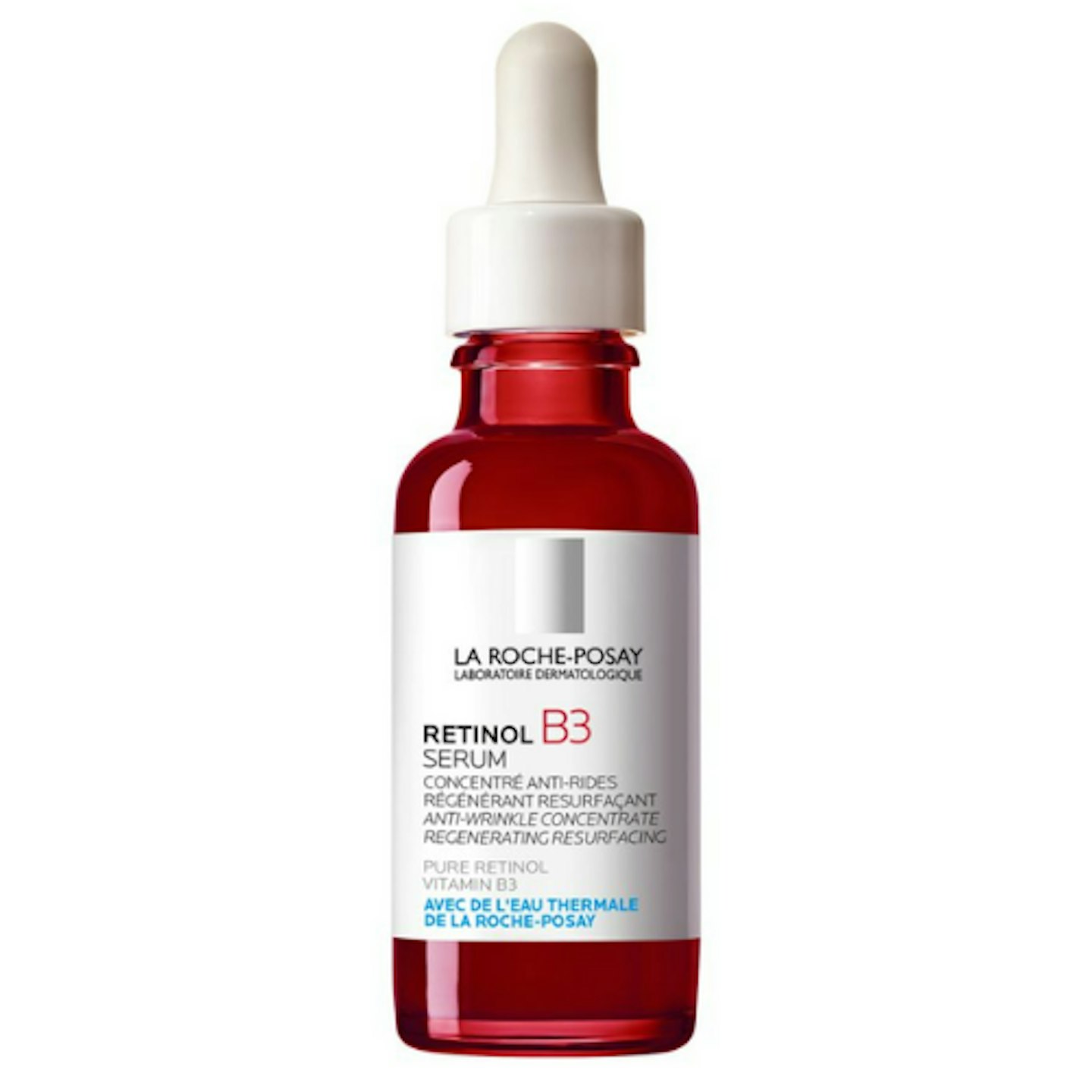
www.boots.com
Combining retinol, vitamin B3, and glycerin, the La Roche-Posay serum has been specifically formulated for those concerned about skin dehydration, irregularities, and wrinkles.
Retinoid: 0.3% retinol
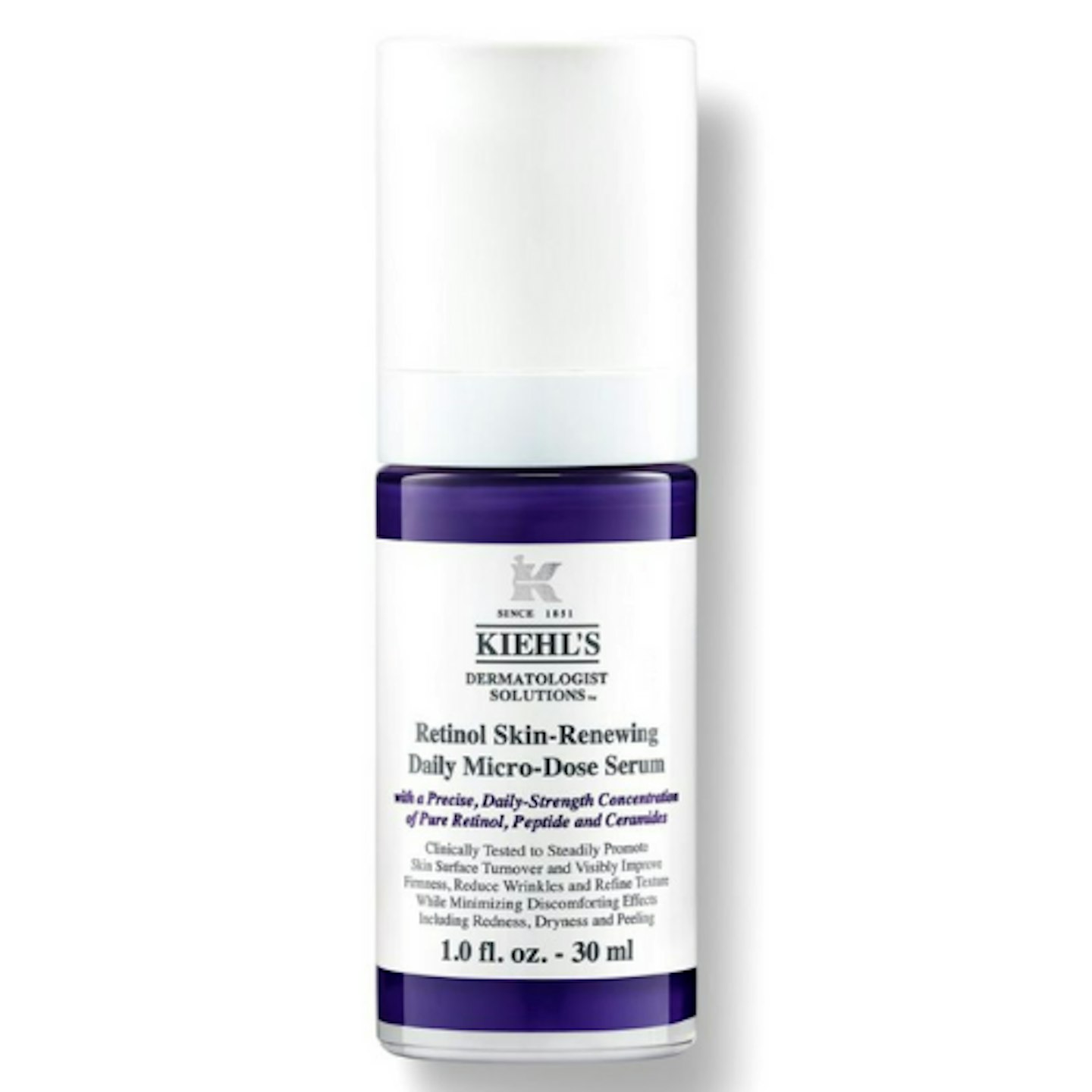
www.boots.com
This potent serum with rave reviews provides a daily dose of retinol suitable for beginners. It delivers a daily-strength micro-dose to help reduce the appearance of wrinkles and even skin texture with minimal discomfort.
Retinoid: Retinol (undisclosed %)

www.medik8.com
Medik8's Time Release Technology gently releases retinol into the skin overnight, ensuring total skin comfort alongside the powerful active in a lightweight, Jojoba oil-infused formula.
Retinoid: 0.3% retinol
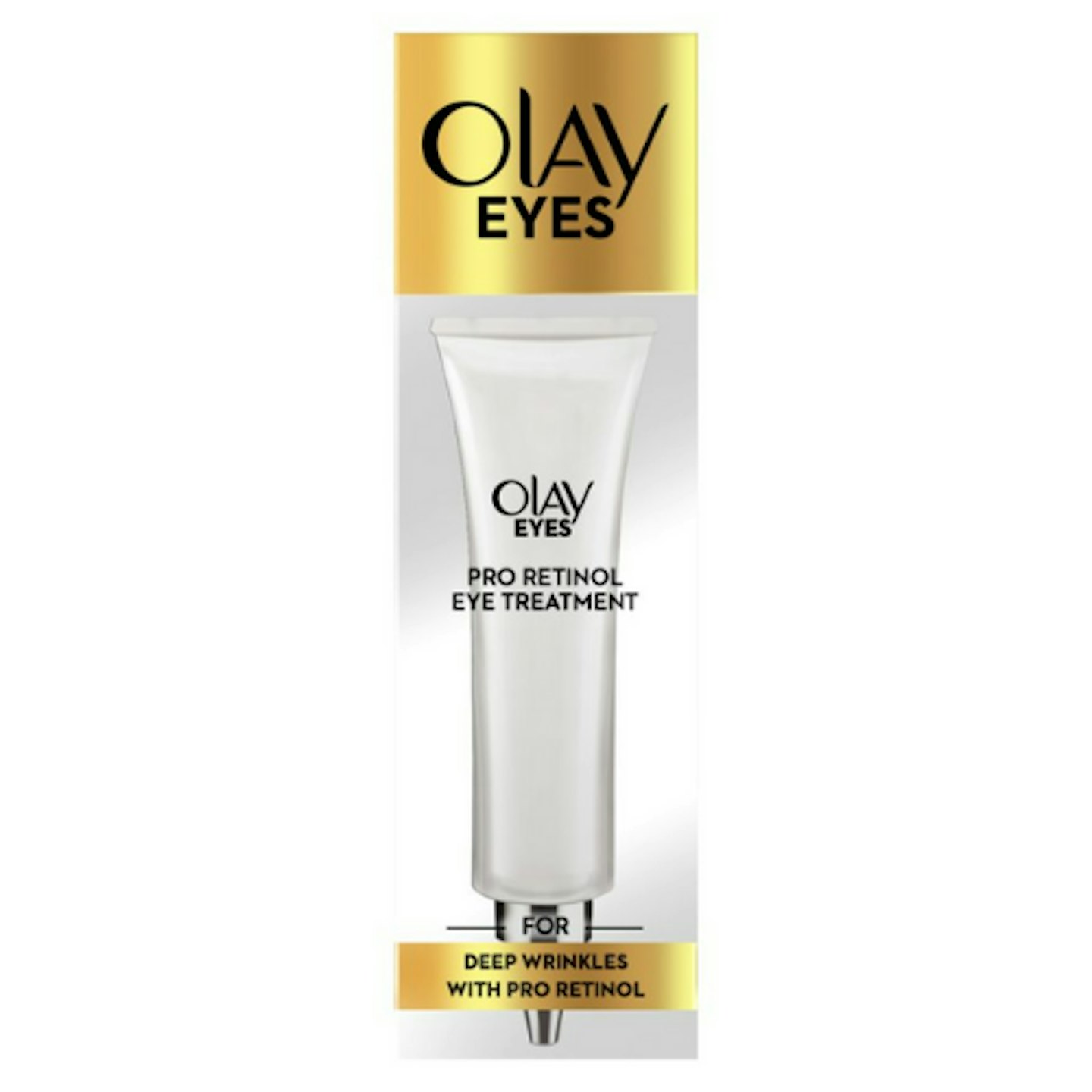
www.boots.com
Olay's Pro-Retinol Eye Treatment has been designed to smooth the appearance of even deep wrinkles in the eye area, formulated with a unique retinol blend that's effective and gentle on the skin.
Retinoid: Retinyl propionate (undisclosed %)
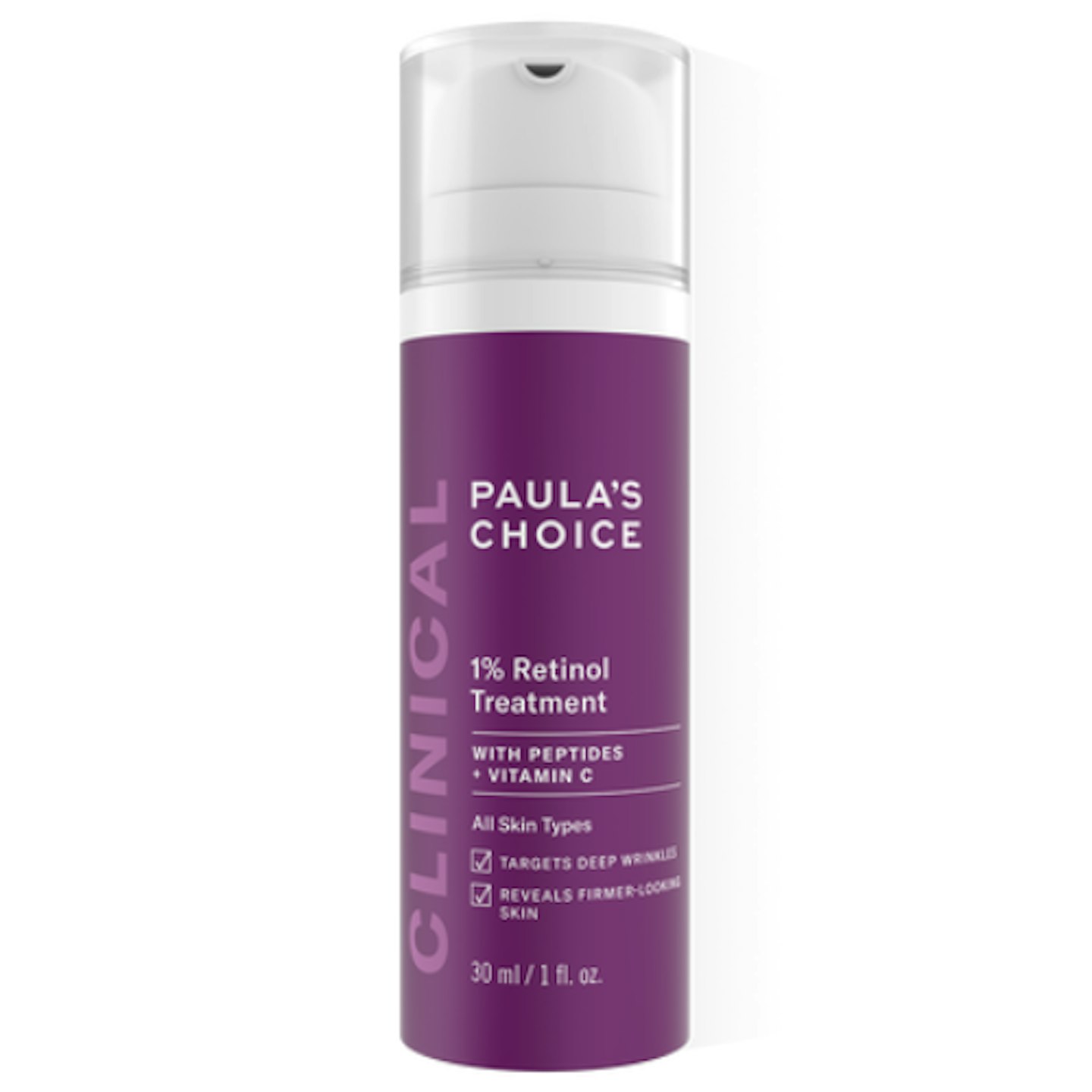
www.paulaschoice.co.uk
Whether you're trying to tackle wrinkles, enlarged pores, brown spots, or breakouts, this lightweight lotion combines pure retinol with potent antioxidants to enhance hydration and even skin texture.
Retinoid: 1% retinol

www.lookfantastic.com
The Murad serum combines retinol and retinol propionate for optimal potency and efficacy. The lightweight formula helps to reveal a smoother and more radiant complexion that's powerful yet gentle to help prevent the irritating effects of retinol use.
Retinoid: Retinol and retinol propionate (undisclosed %)
Retinol myth-busters
It thins the skin
“While there may be some peeling initially, retinol stimulates the collagen-producing cells in the dermis, which in turn actually helps to thicken the skin,” says Dr Sophie.
Results will show immediately
False we're afraid! Results can vary depending on how much there is to repair and it can take up to six months to see results with an over-the-counter retinol.
If you experience redness or peeling, you should stop
When you start using a retinoid, it's completely normal to experience redness, peeling, dryness, or irritation while your skin is acclimatising - this is one of those products where you need to trust the process. These side effects usually subside after a few weeks when you can then expect those glowing results.
If you're just beginning with retinol, it's recommended to start with a milder percentage and work your way up or use a vitamin A derivate that's kinder to sensitive skin. Retinyl retinoate, retinyl palmitate, hydroxypinacolone retinoate, and adapalene are the least likely to cause irritation.
However, if you experience burning, soreness, blistering or bleeding, you should stop using and let your skin calm down, and return to normal before trying again.
All retinoids are the same
There are loads of different variations of retinoids, from type (as Dr Sophie explored above), strength, and form, with moisturisers, serums, and overnight creams.
You shouldn’t use retinol around the eye
Dr Sophie says, “nowadays, there are some great eye creams containing retinol. Introduce sparingly and gradually, just as you would the rest of your face.”
Keen to take your skincare regime to the next level? Read ourLux Skin reviews to find out how these affordable beauty devices could transform your skin.
